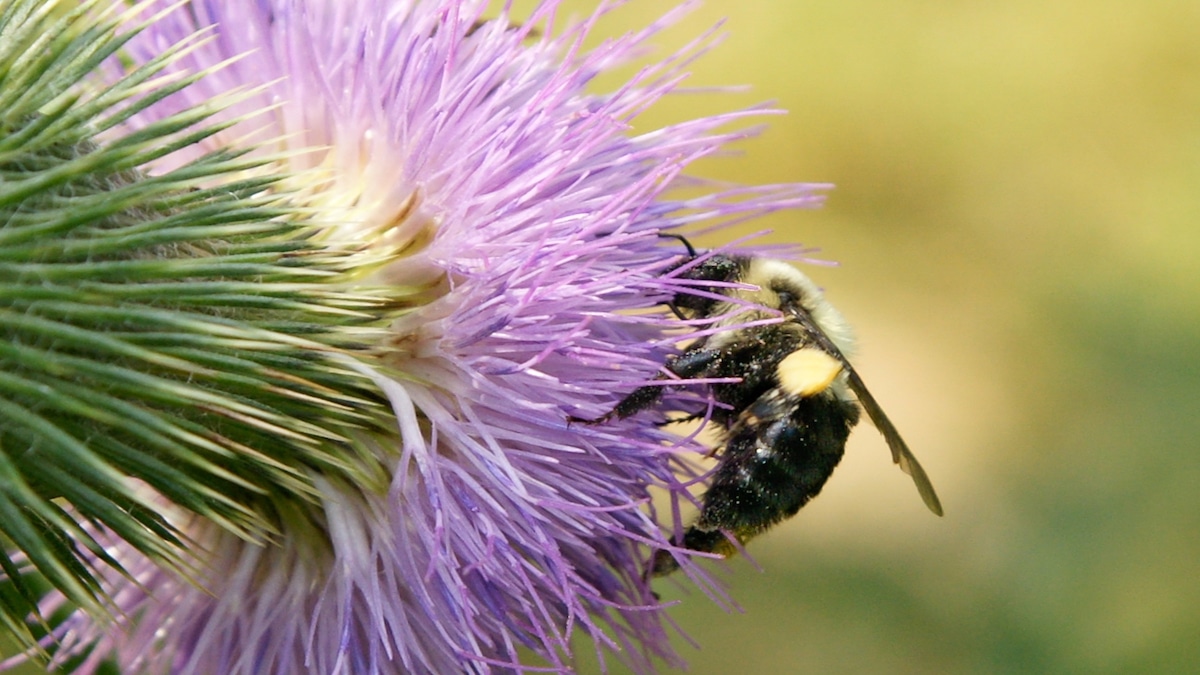
‘Injurious Weeds’ Attract More Insects Than UK-Approved Wildflowers, Study Finds

In the UK, certain wildflowers are deemed “injurious weeds” and subject to control by government demand.
However, a new study published in the Journal of Applied Ecology Monday found that these “injurious” plants are actually beneficial for biodiversity and pollinators.
“There now exists a substantial body of evidence which shows that weeds are a vitally important resource for pollinators,” Dr. Nicholas Balfour, a post-doctoral researcher at the Laboratory of Apiculture and Social Insects (LASI) at the University of Sussex, said in a university press release.
The “injurious weeds” designation comes from the Weeds Act of 1959.
“Where the Minister of Agriculture, Fisheries and Food (in this Act referred to as “the Minister”) is satisfied that there are injurious weeds to which this Act applies growing upon any land he may serve upon the occupier of the land a notice in writing requiring him, within the time specified in the notice, to take such action as may be necessary to prevent the weeds from spreading,” the act reads.
The weeds targeted for potential control are spear thistle, creeping or field thistle, curled dock, broad-leaved dock and ragwort. These plants are considered a threat to agriculture, according to the study. However, since the act was first passed, there is growing awareness of the fact that intensive agricultural practices pose a major risk to pollinators. A 2019 study found that around a third of wild bee and hoverfly species in the UK had declined between 1980 and 2013, for example, as The Scientist reported. This was largely attributed to habitat loss and pesticide use, though the climate crisis may also play a role.
To address concerns like these, the UK’s Department for Environment, Food and Rural Affairs (DEFRA) has singled out certain plants it considers beneficial to pollinators and agriculture, like red clover and wild marjoram, the press release said.
To test the wisdom of the government recommendations, the researchers observed how insects interacted with wildflowers in six pastures or former pastures in Sussex. These included the two “injurious” thistles and ragwort, as well as the DEFRA recommended plants.
They found that the number and variety of insects visiting the so-called “injurious” plants were on average twice that of the insects visiting the recommended plants, according to the study. Further, an analysis of other studies found that the weeds were associated with four times more flower-visiting insects and five times more insects being targeted for conservation.
The researchers speculated that there may be several reasons behind the insects’ preferences:
- The “injurious” weeds grow in many places.
- Their flower shape makes them accessible to many species.
- They produce four times more nectar than recommended species on average.
All of this suggests that the UK’s agricultural policy is out of step with science.
“Pollinators are crucial to maintaining global biodiversity, ecosystem resilience and agricultural output. However, there are significant concerns about pollinator declines and the long-term decline of flowers in our landscapes is considered a key factor,” Balfour said in the press release. “We appreciate that agricultural weeds can cause yield losses in arable and pastureland. However, we’ve shown that they can also be of great value to both flower-visiting and herbivorous insects – and shouldn’t be underestimated when it comes to supporting our natural biodiversity.”
The study also suggests that the government is wasting money controlling ultimately helpful wildflowers. Freedom of Information requests revealed that local and national government bodies are spending around £10 million controlling the “injurious” weeds every year, while promoting the recommended species costs more than £40 million a year.
“It is alarming that the many public bodies are using tax-payers’ money and volunteers to actively remove ragwort,” Balfour said in the release. “This plant was found to support the most conservation-listed insect species in our study.”
The UK now has an opportunity to shift its policy because it is rolling out a new scheme for farmers in England by the end of 2024 to replace EU policies.
“[T]he challenge of reconciling the conflicts between agricultural production and these native and biodiverse species should be a renewed priority to land managers, researchers and policymakers,” the study authors concluded.

 233k
233k  41k
41k  Subscribe
Subscribe 